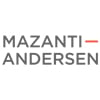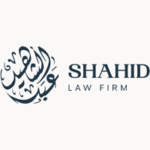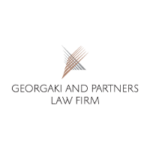-
What are the key rules/laws relevant to M&A and who are the key regulatory authorities?
From a legal standpoint, in Italy, asset or share deals are commonly regarded as private transactions between natural and/or juridical persons, being the outcome of private negotiations between bidders and sellers. Such transactions are subject to several laws and regulations which can be finally identified only by considering the purpose of the deal, the legal form of the parties involved and their country of origin, the sector in which they operate, and their qualification as public or private companies.
The key rules and legal provisions regulating both private and public M&A transactions can be found in the Italian Civil Code, adopted by Royal Decree No. 261 of 16 March 1942. Additional rules and principles that shall be taken into account are those pertaining to the foreign direct and indirect investment laws and regulations (Law Decree No. 21/2022), as well as the legislation governing merger control (in particular, at the national level, Law No. 287/1990, on the protection of competition and the market).
However, if the transaction involves at least one Italian company whose stock is publicly traded on the stock markets and/or is fully or partially owned by a public entity, compliance with certain other laws and regulations is essential: the Consolidated Law on Finance (Legislative Decree No. 58, dated 24 February 1998) and the regulation of the Italian Securities and Exchange Commission (CONSOB) No. 11971, dated 14 May 1999, implementing the Consolidated Law on Finance, as amended and supplemented from time to time.
Notwithstanding the above, it is worth noting that the parties are always free to choose any different jurisdiction’s laws, though, if not in the context of a “cross-border” transaction, they most likely will opt for Italian law to govern their entire contractual relationship. In this sense, regardless of the applicable law chosen by the parties, certain mandatory provisions cannot be overridden if the Target company is an Italian company (or it carries out business operations in Italy). We are referring to, among others, legal provisions applying to labour matters, real estate (assets) transfers, the transfer of personnel within a business or business unit and in particular to the rules setting forth the effectiveness of shares (and quotas) transfers as well as those concerning any mandatory filings with the competent Companies’ Register. Such rules must be followed regardless of the jurisdiction chosen for the overall transaction.
-
What is the current state of the market?
The year 2024 stands out as a record-breaking one, with nearly 1,400 deals closed— a clear sign of strong economic confidence. Transaction values have nearly doubled from 2023, though they remain below the 2021 post-COVID peak. As companies shift their focus toward value creation, opportunities for M&A activity are expected to grow, fueling further optimism. Financial investors, particularly Private Equity funds, continue to play an increasingly prominent role. Despite the challenging macroeconomic environment, their share of total transactions rose to 44%, up from 40% in 2023, further solidifying their influence in the market.
-
Which market sectors have been particularly active recently?
Italy’s M&A market has been particularly active in several key sectors. The financial services industry is undergoing significant consolidation, with major banks pursuing strategic acquisitions to strengthen their market positions. The healthcare sector is also seeing increased deal activity, especially in diagnostics, elderly care, and emerging areas like aesthetic medicine. The consumer sector remains a major driver of M&A, with strong interest in fashion and luxury brands. Additionally, the technology, media, and telecommunications sector are experiencing growth, fueled by investments in digital infrastructure and services. Overall, Italy’s M&A landscape is dynamic, attracting both domestic and international investors.
-
What do you believe will be the three most significant factors influencing M&A activity over the next 2 years?
The three most significant factors influencing M&A activity over the next two years are:
- Restructuring Activity: increased restructuring efforts will create opportunities for M&A, particularly in industries undergoing financial distress. This is especially relevant in the automotive sector, where value chain disruptions and the transition to electric vehicles have introduced uncertainties but also new possibilities for business combinations.
- Industry Consolidation: in certain sectors, we are witnessing a strong trend toward consolidation, with larger, more powerful players emerging. These companies are better positioned to meet market demands, drive efficiencies, and enhance their competitive edge, further fueling M&A activity.
- Delisting and Geopolitical Uncertainty: in Italy, many publicly listed companies are undervalued in the market, leading them to consider delisting from stock exchanges. Additionally, geopolitical instability – driven by factors such as political shifts (for what concern the United States and the European Union), the Russia-Ukraine war, and the Israel-Palestine conflict – is influencing investment strategies and cross-border M&A decisions.
-
What are the key means of effecting the acquisition of a publicly traded company?
The acquisition of a publicly traded company in Italy is governed by the Italian Civil Code, the Consolidated Law on Finance (TUF – Testo Unico della Finanza), and the regulations of the Italian Securities and Exchange Commission (CONSOB), on the basis of the Directive 2004/25/EC (aimed at harmonizing the rules on public takeover bids of the different Member States of the European Economic Area).
Several legal and financial strategies may be implemented to seek the acquisition of all or a substantial part of the share capital of a publicly traded company. In this context, it is important to highlight that the acquisition of voting securities through private agreements or “block trades” is allowed only if not aimed to gain control over the target public company, either by the bidder or by individuals acting together. When the acquisition process seeks to take control of Italian public companies, it is referred to as a “takeover,” which usually takes the form of public tender offers.
Such tender offers can be made on a voluntary basis and/or on a mandatory basis. Voluntary tender offers are initiated by the bidder and can involve any type or number of securities, either on a hostile or friendly basis. In contrast, a mandatory takeover bid must be launched when certain ownership thresholds are met or exceeded (specifically, 30% or 25% in certain specific circumstances provided by law). The mandatory takeover bid must cover the entire share capital of the target company. It could also happen that a mandatory tender offer must be launched following a voluntary tender offer if thought it the bidder reaches or exceeds the relevant participation thresholds (to avoid this scenario, it is essential to structure the first offer as a prior partial bid).
Additionally, takeover bids can take the form of a cash offer (Offerta Pubblica di Acquisto), a stock swap (Offerta Pubblica di Scambio), or a combination of both.
-
What information relating to a target company is publicly available and to what extent is a target company obliged to disclose diligence related information to a potential acquirer?
The buyer can obtain various information on the target company from the Companies’ Register, including details on the shares issued and any encumbrances on quotas of limited liability companies (Società a Responsibilità Limitata). It also provides access to the registered shareholders of the target company; however, for joint stock companies (Società per Azioni), this information may not always be up to date, as the updated list of shareholders is usually filed only once a year while it is updated for any single transfer when the involved company is a limited liability company. Additionally, the Companies’ Register includes records of past transfers of quotas and shares, articles of association, and annual financial statements (for corporations only). It also contains details about company locations and any extraordinary transactions that have taken place, such as transformations, mergers, demergers, and the sale or lease of going concerns. Furthermore, Land Registers and Cadastral Registries can be consulted to retrieve information about real estate, registered ownership, encumbrances and past transfers. Both checks are generally carried out as part of the due diligence process, with independent inquiries made whenever information is not readily disclosed. With respect to public companies, other information can be retrieved on the stock exchange platform or directly on the company’s website where compliant with the disclosure obligations.
-
To what level of detail is due diligence customarily undertaken?
Due diligence typically encompasses legal, labor, IT, tax, and financial aspects. Compliance matters, such as environmental regulations and data protection, are becoming increasingly important and require dedicated attention. The scope and depth of due diligence may vary based on the target company’s specific business operations. In Italy, sellers rarely provide vendor due diligence reports, but when they do, a reliance clause may be negotiated.
-
What are the key decision-making bodies within a target company and what approval rights do shareholders have?
Key corporate decisions are taken by the management body of the target company (e.g., it could be a Board of Directors, a sole director, or more rarely, two or more directors acting jointly or severally) and by the Shareholders’ Meeting, with regulatory oversight applicable if the company is publicly traded. The management body is responsible for managing the company’s daily operations and approving business strategies, budgets, and significant contracts. While the management body can negotiate the key terms and conditions of an acquisition agreement (or a public tender offer), its execution often requires shareholders’ approval. The Shareholders’ Meeting (Assemblea dei Soci) is the primary forum for shareholders’ decision-making and is convened in two forms: ordinary and extraordinary meetings. Ordinary meetings, held at least once a year, are tasked with approving financial statements, appointing directors, and authorizing dividend distributions. Extraordinary meetings, on the other hand, are convened for significant corporate actions such as mergers, company transformations, changes to the by-laws, and voluntary liquidation. Shareholders hold specific approval rights on various corporate matters. Also, if a transaction involves a substantial portion of the target company’s assets, shareholders’ approval is required. During a takeover bid, shareholders determine whether to tender their shares in response to a public offer. Capital increases and potential share dilution also require shareholder consideration, as existing shareholders possess preemptive rights unless explicitly waived through a shareholder vote. Furthermore, shareholders have the authority to influence corporate governance by voting to replace the management body or amend the company’s by-laws.
-
What are the duties of the directors and controlling shareholders of a target company?
In Italy, the directors of a target company must act in the best interests of the company and shareholders, ensuring transparency, neutrality, and compliance with regulatory obligations during an acquisition process. They must provide accurate information, avoid conflicts of interest, and issue a reasoned opinion on the bid. In the context of a takeover bid (with respect to a public target company), the directors are also required to issue a statement containing all information useful for the shareholders to evaluate the bid and their own assessment of the bid and shall refrain from taking any action that may be intended to promote or to deter such bid. Controlling shareholders have a duty of fairness towards minority shareholders. They must also disclose significant holdings, avoid insider trading, and act in good faith during negotiations.
-
Do employees/other stakeholders have any specific approval, consultation or other rights?
While employees cannot directly interfere with M&A deals, their consultation rights and union actions can influence the whole acquisition process and deal structure. Regulators and the government also play a key role in approving deals in strategic sectors and/or in case of concentrations.
Employee Rights:
- Pursuant to article 2504 bis of the Italian Civil Code, the resulting or incorporating company assumes the rights and obligations of the companies involved in the merge, continuing in all their relations prior to the merger, including employment relationships.
- Article 2112 of the Civil Code states that in the event of a business transfer, the employment relationship continues with the transferee company and the employee retains all the rights arising therefrom.
- The transferor company and the transferee company are, in addition, jointly and severally liable for all claims the employee had at the time of the transfer.
- Pursuant to article 47 of Law No. 428 of 1990, a business transfer in which more than 15 workers are employed in total requires that the transferring company and the transferee company give written notice at least 25 days before the transfer act is finalized to their respective trade union representatives, who may request a joint discussion within 7 days.
- Collective bargaining agreements may require union negotiations before layoffs or restructuring.
- Failure of the transferor company and the transferee company to comply with their obligations to inform and consult with trade unions constitutes anti-trade union conduct.
Other Stakeholder Rights:
- Regulatory Approval: Antitrust authorities and sector regulators must approve deals in key industries in case of concentrations.
- Minority Shareholders: they can challenge M&A decisions, and they are protected by mandatory takeover bid. Usually, in the context of private rights, special rights granted to minority shareholders are set forth in the company’s by-laws and/or shareholders agreements.
- Golden Power: the Italian government has the power to impose conditions or even a veto or an opposition in the context of public and private M&A transactions in strategic sectors. The Golden Power applies to the defense and national security sectors, with 5G technology recently included. It also extends to strategically significant industries such as energy, transportation, and communications. In alignment with European regulations – specifically, EU Regulation No. 452/2019 the Italian legislator has expanded the scope of these special powers, incorporating additional strategic areas. These now encompass sectors like media pluralism, artificial intelligence, biotechnology, agri-food, bank & insurance, healthcare and water, among others.
-
To what degree is conditionality an accepted market feature on acquisitions?
In private M&A transactions, the use of conditionality is common and heavily negotiated, beginning from the non-binding agreement, such as the letter of intent. Conditions precedent are commonly used to safeguard the interests of buyers. The inclusion of a condition precedent in an acquisition agreement ensures that essential regulatory approvals and/or financing arrangements are obtained before closing and that issues identified during the due diligence process are tackled and resolved. Furthermore, they may be used to verify the absence of any material adverse changes occurring between the signing date and the closing date. The only limit provided by law is that the fulfilment of conditions precedent shall not solely depend on the will of the buyer. However, excessive conditionality may be viewed as a sign of uncertainty, potentially affecting deal certainty and pricing.
In public M&A transactions, conditionality is more restricted due to regulatory constraints aimed at ensuring market transparency and protecting minority shareholders. Only voluntary takeover bids may include conditions such as a minimum acceptance threshold or regulatory approvals, mandatory takeover bids are subject to fewer conditions to prevent market manipulation and ensure the equal treatment of shareholders. Regulatory authorities, such as CONSOB and the Italian Antitrust Authority, closely scrutinize the use of conditions to ensure compliance with legal and financial market standards.
-
What steps can an acquirer of a target company take to secure deal exclusivity?
To secure deal exclusivity in Italy, an acquirer can negotiate an exclusivity agreement with the target company or its shareholders, ensuring that the seller does not engage in discussions or negotiations with other potential buyers for a specified period. This agreement is often formalized through a letter of intent or a preliminary agreement (even if non-binding), which may outline key deal terms, due diligence rights, and conditions precedent while also incorporating binding exclusivity provisions. In addition to a contractual exclusivity commitment, the acquirer may seek to strengthen its position by offering a break-up fee or reverse break-up fee, creating financial disincentives for the target to pursue alternative transactions. Lock-up agreements with key shareholders can also be used to prevent them from selling their shares to competing bidders, thereby reinforcing exclusivity.
Another strategy involves structuring the transaction through a preliminary sale and purchase agreement (contratto preliminare di compravendita) that bind the parties to complete the transaction. While the preliminary sale and purchase agreement does not guarantee absolute exclusivity, it significantly limits the ability of the target to engage with other interested parties.
Regulatory considerations must also be taken into account, as exclusivity agreements must comply with Italian antitrust and corporate governance rules. In certain cases, particularly in publicly traded companies, directors must ensure that exclusivity arrangements do not unduly limit their fiduciary duties to act in the best interest of the company and its shareholders.
-
What other deal protection and costs coverage mechanisms are most frequently used by acquirers?
There are a wide variety of safeguards permitted under the Italian Civil Code; we will highlight below some of the most used.
One effective way for buyers to secure protection is by negotiating a break-up fee within the letter of intent. This arrangement requires the seller to compensate the prospective buyer if the deal falls through due to specific factors, such as the seller accepting a competing offer. On the flip side, sellers may negotiate a reverse break-up fee, which holds the buyer accountable for paying a penalty if they fail to finalize the transaction under agreed-upon circumstances or within a specified timeframe.
Lock-up agreements with key shareholders, especially in the event of a multi-step acquisition, can further enhance deal security by restricting them from selling their shares to third parties and seeking offers.
Material adverse change clauses are frequently incorporated into acquisition agreements, allowing the buyer to withdraw from the transaction if significant adverse events occur before closing. These clauses are particularly relevant in industries exposed to regulatory or market volatility. Similarly, specific performance provisions may be included to ensure that the seller is contractually bound to complete the transaction under agreed terms.
Regarding cost coverage, acquirers often negotiate expense reimbursement clauses, whereby the target company agrees to cover certain due diligence, legal, and advisory costs if the transaction does not proceed due to reasons attributable to the seller. Escrow arrangements may also be used to hold a portion of the purchase price in a neutral account, providing a financial safeguard against potential post-closing liabilities or disputes.
The above, in addition to any customary representations and warranties and special indemnities that are included in the SPA and thoroughly negotiated by the parties.
-
Which forms of consideration are most commonly used?
Cash consideration is most commonly used in private deals (especially in the Mid-Market segment) whereas consideration shares (swaps) or a combination of both are also utilized but less prevalent. Notably, equity rollovers are gaining increasing attention in private deals, especially when Private Equity firms are involved on the buy-side.
-
At what ownership levels by an acquirer is public disclosure required (whether acquiring a target company as a whole or a minority stake)?
For private transactions involving limited liability companies (S.r.l.) public disclosure in never required but, in fact, is unavoidable in light of the mandatory filing with the Companies’ Register of any transfer of quotas. The same goes for the joint stock companies (S.p.A.) even if, as observed in question 6, the updated list of shareholders is usually filed only once a year.
For public companies, disclosure obligations arise when certain ownership thresholds are met, ensuring market transparency and investor protection. Any individual or entity acquiring a stake that reaches or exceeds 3% of the voting share capital of an Italian listed company (or 5% for small and medium enterprises) must notify CONSOB and the target company within four market days. Subsequent disclosure is required when the acquirer’s holding increases (or decreases) beyond specific thresholds, which are set at 5%, 10%, 15%, 20%, 25%, 30%, 50%, and 66.6%.
Additionally, in certain sectors such as banking, insurance, and telecommunications, regulatory approvals and separate disclosure obligations may apply at lower ownership thresholds to ensure compliance with industry-specific rules and prevent undue market concentration. Failure to comply with disclosure requirements can result in fines, the suspension of voting rights attached to undisclosed shares, and other regulatory sanctions.
-
At what stage of negotiation is public disclosure required or customary?
Most of the private transactions always remain confidential and no public disclosure is required, unless the target company is operating in certain specific sector and/or is engaged with public entities. Of course, disclosure before the competent authorities is always essential in the context of the foreign direct and indirect investment laws and regulations.
For publicly traded companies, any decision to initiate a takeover bid or the occurrence of conditions triggering a mandatory offer must be promptly reported to CONSOB and simultaneously disclosed to the market. Italian law does not specify a precise timeframe between the decision or triggering event and the notification to CONSOB. However, since the law requires such notification to be made “without delay”, market practice indicates that, for voluntary tender offers, the notification is submitted to CONSOB on the same day the bidder’s board of directors approves the offer. Similarly, for mandatory tender offers, the notification typically occurs on the same day the obligation arises (for instance, upon closing a transaction that results in the bidder acquiring shares exceeding the relevant thresholds).
Prior to this, negotiations between a potential bidder and the target company or its shareholders should remain confidential, with appropriate safeguards in place to protect and maintain confidentiality. This is commonly achieved through non-disclosure agreements between the bidder and the target or its shareholders, covering the existence and details of ongoing negotiations, exchanged information, and commitments to tender shares.
-
Is there any maximum time period for negotiations or due diligence?
There is no statutory maximum time period for negotiations or due diligence in M&A transactions, including transactions involving publicly traded companies. The duration of the process is based on the size, complexity, and structure of the deal, ranging from a few months to over a year. However, in the context of public M&A transactions, the tender process will usually require at least 3 months to be completed, and the Consolidated Law on Finance (TUF – Testo Unico della Finanza) sets out a timetable for the publication of certain documents by both the buyer and the target company. While the preparatory stage of the transaction can last for an indefinite term, the timetable applies for any document and/or information to be disclosed after the negotiations are disclosed to the CONSOB (see question 16).
When referring to private M&A, a typical acquisition transaction (Mid-Market segment), starting from the date of execution of the non-binding agreements up and until the execution of the binding agreements, and including the due diligence phase, typically takes from six to twelve months (if not subject to any regulatory approval).
-
Is there any maximum time period between announcement of a transaction and completion of a transaction?
In Italy, there is no legally mandated deadline for completing a transaction.
However, in the context of public M&A tender offers are subject to expiration. Typically, an offer must be open for a minimum of 15 market days up to a maximum of 40 market days starting from the date of publication of the offer document (periodo di adesione). Such acceptance period may be shorter for voluntary takeover bids, but in any case, it may be further extended/reopened.
-
Are there any circumstances where a minimum price may be set for the shares in a target company?
Yes, in Italy, there are specific circumstances where a minimum price may be set for shares in a target company, particularly in public M&A transactions.
In the case of a mandatory takeover bid, the offer price must not be lower than the highest price paid by the acquirer for the same securities in the previous 12 months. If the acquirer has not made recent purchases, the price is determined based on objective market criteria, including the volume-weighted average market price over a specified period. For voluntary tender offers, the acquirer is generally free to set the price. However, if the bidder later increases its stake through direct market purchases at a higher price, it may be required to adjust the bid price to reflect these transactions.
In the context of delisting and squeeze-out procedures, if an acquirer reaches 90% ownership, it can initiate a squeeze-out process to acquire the remaining shares. If ownership reaches 95%, a compulsory buyout is required, and the price must be at least equal to the highest price paid by the acquirer in the previous 12 months or, if applicable, a price determined by CONSOB based on fair market valuation criteria. Additionally, in cases involving corporate restructurings, mergers, or capital increases, Italian law provides mechanisms to ensure fairness in share pricing, particularly when minority shareholders’ rights could be affected. For example, when a company issues new shares, existing shareholders typically have preemptive rights unless waived by a shareholder vote, and the issue price must be set at a level that prevents undue dilution.
For what concerns private deals, it is worth noting the limitation provided by article 2358 (see question 20) pursuant to which if the target company’s shares to be acquired by the buyer are already held by same the company as own shares, the purchase price will need to be determined on the basis of their fair market value, in line with the regime applicable when a shareholder withdraws from the company.
-
Is it possible for target companies to provide financial assistance?
Financial assistance by a target company in the context of an M&A transaction is subject to limitations according to article 2358 of the Italian Civil Code for joint stock companies (S.p.A.) and article 2474 for limited liability companies (S.r.l.).
While article 2474 for limited liabilities companies (S.r.l.) strictly prohibits a company from providing direct or indirect financial assistance, such as loans, guarantees, or security interests in favor of third parties for the acquisition of its quotas, article 2358 of the Italian Civil Code for joint stock companies (S.p.A.) provides for an exception to such general principle, allowing joint stock companies to give financial assistance, if certain requirements are met.
The purpose of this rules is to prevent the misuse of corporate assets and protect creditors and minority shareholders from abusive leveraged buyouts (LBOs) that could compromise the financial stability of the company. In accordance with article 2501-bis of the Italian Civil Code, certain merger structures may be used to purchase a target using financial debt.
-
Which governing law is customarily used on acquisitions?
While Italian law – under the jurisdiction of Italian courts or arbitral tribunals – is customarily used as the governing law for transactions involving Italian target companies, cross-border deals may be subject to foreign governing laws (see question 1). However, Italian mandatory rules will still apply to specific matters such as the transfer of assets located in Italy, employment regulations, and regulatory compliance.
-
What public-facing documentation must a buyer produce in connection with the acquisition of a listed company?
In the acquisition of a listed company in Italy, the buyer must comply with disclosure and reporting obligations under Italian and EU financial regulations, ensuring transparency and investor protection. The key public-facing documentation includes the following:
- Filing of the draft offer document (documento di offerta) with CONSOB prepared by the bidder; the bidder must also send CONSOB cash confirmation letter, that is, confirmation by a bank that the bidder has sufficient means to satisfy its payment obligations in relation to the offered price.
- Publication of the offering document (documento di offerta) approved by CONSOB (including the statement of the target’s board of directors on the offer).
- Publication of the final results.
In cases where the acquisition involves a merger or restructuring, a merger plan (progetto di fusione) and related documentation must be prepared in compliance with the Italian Civil Code and EU Merger Regulations, including financial statements and reports by independent experts.
-
What formalities are required in order to document a transfer of shares, including any local transfer taxes or duties?
The formalities required to document a transfer of shares depend on whether the company is privately held (S.p.A. or S.r.l.) or publicly listed on a regulated market. The key legal and tax requirements are as follows:
- For privately held companies, the transfer of quotas of an S.r.l. (limited liability company) requires a written agreement in the form of a public deed or a private deed authenticated by a notary. The transfer must then be registered with the Companies’ Register (Registro delle Imprese) within 30 days to be effective against third parties. For S.p.A. (Società per Azioni) shares, transfers are typically executed through notarized endorsement of shares or electronic transfers, depending on whether the shares are in certificated paper form or in dematerialized form, and registration of the transfer in the shareholders’ ledger.
- For publicly listed companies, share transfers are executed electronically through a centralized depository system (Monte Titoli) and do not require notarization. The transfer becomes effective upon book-entry registration.
- From a tax perspective, no notarial deed is required for S.p.A. shares, and the transfer is generally exempt from VAT but subject to a fixed registration tax of Euro 200 if the agreement is registered voluntarily. Additionally, share transactions are subject to the Italian Financial Transaction Tax (IFTT or Tobin Tax) under Law No. 228/2012 payable by the buyer, applied at 0.2% for off-market transfers of listed and unlisted securities and 0.1% for regulated market transactions.
If the transfer involves a taxable capital gain, the seller may be liable for capital gains tax at standard corporate or personal income tax rates, depending on their tax residency and whether any double tax treaties apply.
-
Are hostile acquisitions a common feature?
Hostile acquisitions are relatively uncommon in Italy.
-
What protections do directors of a target company have against a hostile approach?
When considering possible defenses to a hostile bid, in addition to their general duties (see question 9) the target’s directors shall take into account the following regulatory principles:
- According to the passivity rule (or board neutrality rule) certain extraordinary transaction or corporate actions require shareholder approval, particularly those that could obstruct the success of the bid. These actions include capital increases, share buybacks, the conversion of non-voting securities into voting securities (which could affect the consideration offered by the bidder), mergers, demergers, corporate reorganizations, the sale of key assets, the acquisition of non-core assets (if such a transaction would substantially alter the target’s business), as well as legal claims or aggressive public campaigns against the bidder.
- The breakthrough rule applies only if a specific provision is included in the target’s articles of association and stipulates that any restrictions on voting rights—whether set out in the articles of association or in shareholders’ agreements—do not apply during shareholder meetings convened to authorize the board’s actions under the passivity rule.
- Reciprocity Rule: the passivity rule does not apply if the offer originates from a bidder that is not subject to the same or equivalent regulations in its jurisdiction of incorporation.
-
Are there circumstances where a buyer may have to make a mandatory or compulsory offer for a target company?
A buyer must launch a mandatory takeover bid under the following circumstances:
- Acquisition of Control (30% standard threshold): when an investor acquires voting securities in a listed company and, either individually or in concert with others, surpasses a threshold of 30% of the company’s voting securities. This threshold is lowered to 25% if the company does not qualify as a small or medium-sized enterprise (SME) and no other shareholder holds a larger stake. If the listed company qualifies as an SME, its articles of association may adjust the standard 30% threshold to a level between 25% and 40% of the voting securities.
- Additionally, obligations may be triggered if an investor who already holds more than the 30% threshold in a listed company, or, in the case of an SME, the applicable threshold, but in all cases, less than 50% of the voting securities, subsequently acquires (whether directly or indirectly) more than 5% of the company’s outstanding voting securities within any 12-month period.
- Furthermore, an investor may also surpass the 30% threshold (or the applicable SME threshold) through the acquisition of voting securities in another company (whether listed or private), whose primary assets consist of shares in the listed target company.
The minimum offer price must be equal to the highest price paid by the bidder (and any person acting in concert) for voting securities in the last 12 months prior to the notice. If no such purchases were made during this period, the minimum price must not be lower than the weighted average trading price of the target company’s voting securities over the same 12-month timeframe.
-
If an acquirer does not obtain full control of a target company, what rights do minority shareholders enjoy?
If an acquirer does not gain full control of the target public company, minority shareholders retain their rights and are entitled to exercise a sell-out mechanism only if the bidder acquires at least 95% of voting securities in light of a 100% offer. According to this mechanism, the minority shareholders (5% or less) could request the bidder to purchase their securities for a consideration which is generally equal to the price of the tender offer in both mandatory and voluntary tender offers (except as otherwise provided by CONSOB). The same mechanism applies when the acquired stake surpasses 90% of the target company’s outstanding voting securities. However, in this scenario, the bidder is exempt from the obligation to purchase the remaining voting securities if, within 90 days, it restores a free float adequate to maintain regular trading activity.
-
Is a mechanism available to compulsorily acquire minority stakes?
When a bidder makes an offer for 100% of the target’s voting securities and successfully acquires at least 95% of those securities, the bidder has the right to acquire the remaining voting securities within three months after the acceptance period for the offer ends, as long as the intention to exercise this right was declared in the offer document. The minority shareholders of the target have no right to oppose the bidder’s exercise of this option, as specified in the offer document.
Italy: Mergers & Acquisitions
This country-specific Q&A provides an overview of Mergers & Acquisitions laws and regulations applicable in Italy.
-
What are the key rules/laws relevant to M&A and who are the key regulatory authorities?
-
What is the current state of the market?
-
Which market sectors have been particularly active recently?
-
What do you believe will be the three most significant factors influencing M&A activity over the next 2 years?
-
What are the key means of effecting the acquisition of a publicly traded company?
-
What information relating to a target company is publicly available and to what extent is a target company obliged to disclose diligence related information to a potential acquirer?
-
To what level of detail is due diligence customarily undertaken?
-
What are the key decision-making bodies within a target company and what approval rights do shareholders have?
-
What are the duties of the directors and controlling shareholders of a target company?
-
Do employees/other stakeholders have any specific approval, consultation or other rights?
-
To what degree is conditionality an accepted market feature on acquisitions?
-
What steps can an acquirer of a target company take to secure deal exclusivity?
-
What other deal protection and costs coverage mechanisms are most frequently used by acquirers?
-
Which forms of consideration are most commonly used?
-
At what ownership levels by an acquirer is public disclosure required (whether acquiring a target company as a whole or a minority stake)?
-
At what stage of negotiation is public disclosure required or customary?
-
Is there any maximum time period for negotiations or due diligence?
-
Is there any maximum time period between announcement of a transaction and completion of a transaction?
-
Are there any circumstances where a minimum price may be set for the shares in a target company?
-
Is it possible for target companies to provide financial assistance?
-
Which governing law is customarily used on acquisitions?
-
What public-facing documentation must a buyer produce in connection with the acquisition of a listed company?
-
What formalities are required in order to document a transfer of shares, including any local transfer taxes or duties?
-
Are hostile acquisitions a common feature?
-
What protections do directors of a target company have against a hostile approach?
-
Are there circumstances where a buyer may have to make a mandatory or compulsory offer for a target company?
-
If an acquirer does not obtain full control of a target company, what rights do minority shareholders enjoy?
-
Is a mechanism available to compulsorily acquire minority stakes?





























